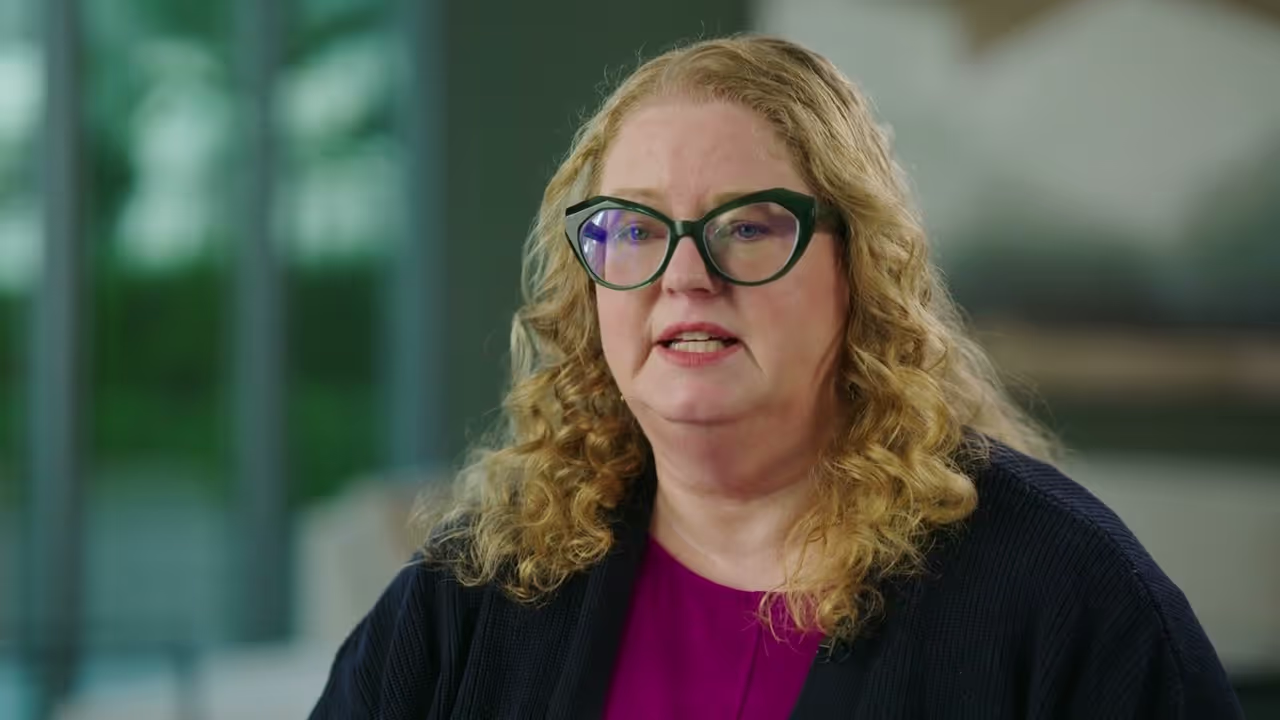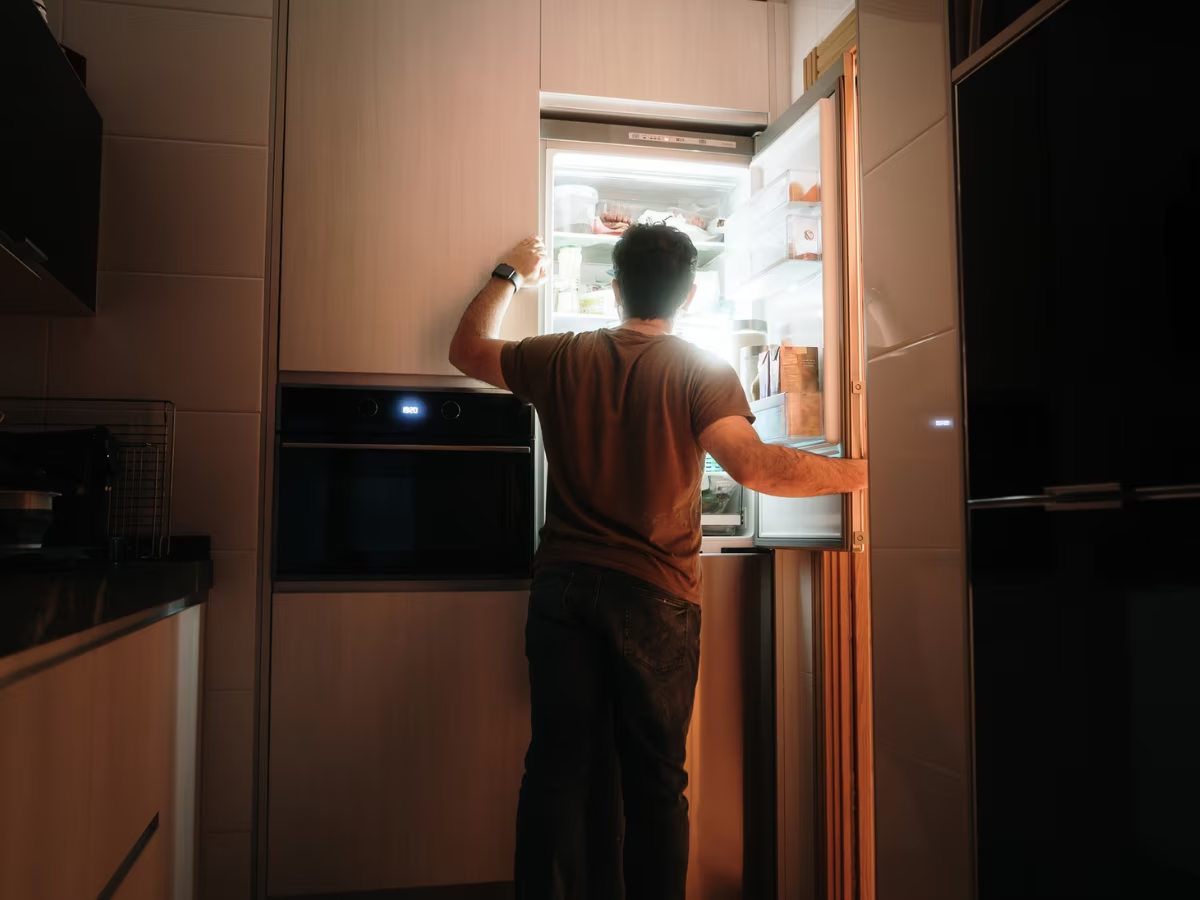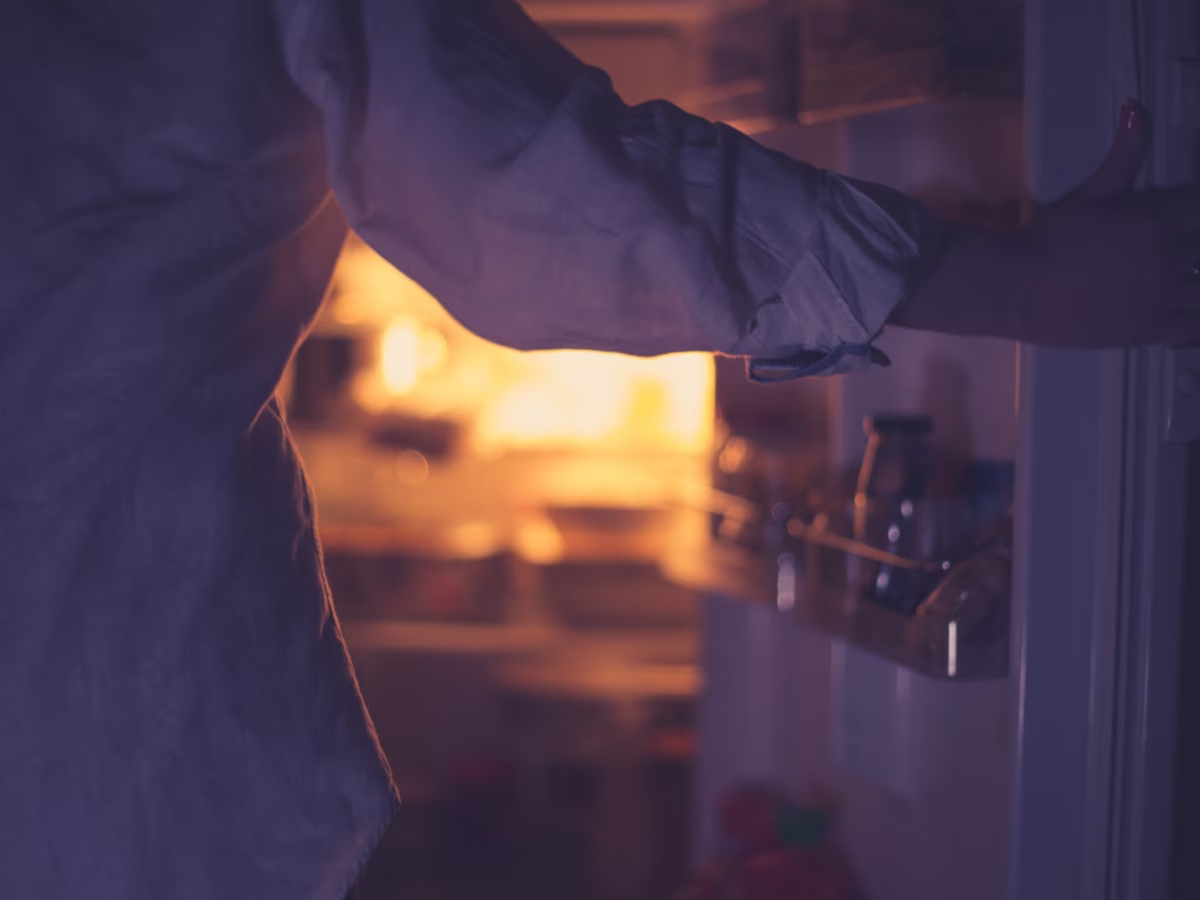Take control of compulsive eating with binge eating treatment
Living with binge eating disorder (BED) or compulsive overeating can involve feelings of guilt and powerlessness. With Monte Nido, recovery is possible.

What is binge eating disorder?
Binge eating disorder is a severe eating disorder that involves rapidly consuming a large amount of food in a short period of time, accompanied by a feeling of loss of control over eating.
Those impacted by binge eating disorder may eat rapidly until uncomfortably full, consume large amounts of food even when they are not hungry, and experience embarrassment about the quantity consumed, leading them to eat alone or feel disgusted, depressed, or guilty after the binge.
Signs & symptoms of binge eating
Recognizing the signs and symptoms of binge eating disorder can help you or your loved one get the needed care.
Here are some common signs to look for:
Physical symptoms of binge eating disorder may include:
Emotional symptoms of binge eating disorder may include:
Risk factors for binge eating disorder
Several factors contribute to the development of Binge Eating Disorder (BED):
Dieting and weight concerns
A personal history of dieting, calorie restriction, and food-related stress can predate binge eating onset and episodes.
Psychological factors
Depression, anxiety, low self-esteem, ADHD, stress, and trauma history are associated with binge eating disorder.
Childhood experiences
Adverse childhood experiences, such as trauma, bullying, or teasing, can also result in emotional eating patterns.
Sociocultural and environmental pressures
Cultural beauty ideals and weight stigma contribute to body dissatisfaction, leading to emotional eating and binge episodes. Facing negative comments, bullying, body shaming, and media-driven body image concerns can also contribute to low self-esteem and a higher risk.
Socioeconomics and food access
Limited access to nutritious food increases BED risk.
Biological factors
Hormone irregularities and genetic loading can contribute to the onset of binge eating disorder.
What does binge eating treatment look like?


Monte Nido can help
With our proven approach, you can trust that you're on a path to lasting recovery, surrounded by compassionate professionals dedicated to your well-being. Our clients with binge eating disorder experience over 70% improvement in all measurements, even 6 months after treatment, from reduced symptoms to improvements in their quality of life.
Our full continuum of care for adults and adolescents includes over 50 inpatient, residential, in-person, and virtual day treatment programs. In addition to our levels of treatment, in many states we also offer our flexible virtual binge eating disorder treatment program for individuals 18+ called Free to Be. This intensive outpatient program is a limited time commitment to fit your schedule.
These programs specialize in treating symptoms and reducing the frequency of binge eating, emotional eating, and related conditions. By addressing behavioral, nutritional, and psychological factors, our programs focus on overcoming physical, mental, and lifestyle barriers associated with binge eating and emotional eating. You will identify unhelpful thought patterns and develop coping skills, recognize self-worth beyond weight and shape, and enhance mood and self-esteem.
Our experienced teams include therapists, mental health counselors, and dietitians who utilize cognitive behavioral therapy, dialectical behavioral therapy, interpersonal psychotherapy, nutrition education, expressive therapy, and relapse prevention.
If you have more questions, please reach out.
Frequently asked binge eating disorder questions
Ask yourself these questions:
- Do you binge eat at least once a week, consuming large amounts of food with a lack of control?
- Do you lose control over your eating before or during a binge episode?
- Do you eat until you feel physically sick, causing pain or nausea that forces you to stop?
- Do you feel guilt, shame, sadness, or loneliness after binge eating?
- Do you frequently eat alone or avoid social events involving food?
If you answered "yes" to two or more questions, you still have concerns, please contact our admissions team here or call 888.228.1253 as you may be experiencing signs of a compulsive eating disorder. Remember, help is available, and recovery is possible.
Physical health risks of binge eating disorder can include:
- Consuming excessive amounts of food during binge episodes can lead to obesity and weight gain, which increases the risk of other health problems such as type 2 Diabetes.
- The strain of excess weight on the body can increase the risk of cardiovascular disease, high blood pressure, high cholesterol, and stroke.
- Frequent binge eating can cause gastrointestinal problems like acid reflux, abdominal pain, constipation, and gallbladder disease.
- Obesity resulting from BED can increase the risk of developing sleep apnea, a potentially serious sleep disorder.
- Carrying excess weight can put a strain on joints and muscles, leading to pain and increased risk of osteoarthritis.
Mental Health Risks
- Binge eating disorder often occurs alongside mood disorders such as depression and anxiety.
- The shame and guilt associated with binge eating can contribute to poor body image and low self-esteem.
- Individuals with binge eating disorder have a higher risk of developing substance abuse disorders as a way to cope with negative emotions.
- The distress caused by binge eating disorder can increase the risk of suicidal ideation in some individuals.
Bulimia nervosa involves binge-purge cycles. Unlike bulimia, people with binge eating disorder do not engage in compensatory behaviors like purging, excessive exercise, or laxative abuse after binge eating episodes.
Part of the criteria for diagnosing binge eating episodes is the occurrence of a binge at least once a week for three months or more. If the behavior occurs less frequently, the person may experience a low-frequency version of bulimia, which falls under Other Specified Feeding or Eating Disorder criteria.
Self-compassion and patience are essential. It is important to treat yourself with kindness and understanding as you work towards recovery. Remember that the journey to recovery may have ups and downs, and that's okay. During your treatment, your care team will work closely with you to develop a relapse prevention plan and aftercare support to help keep you stable and sustain your recovery. We offer alumni support groups, community, and more so you’re never alone in your recovery, even after you complete one of our programs.
.avif)
.svg)



.avif)